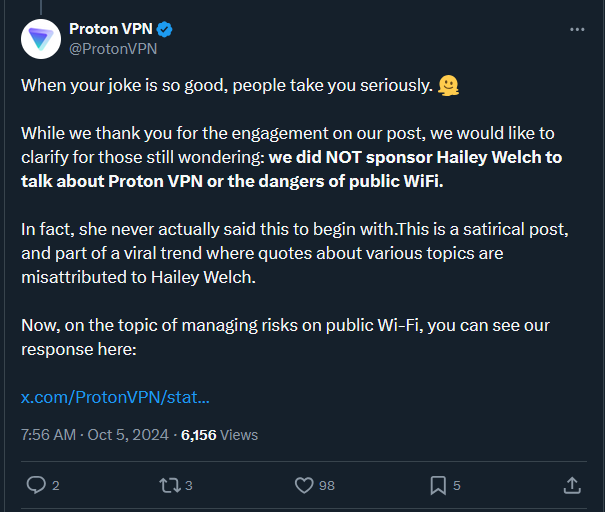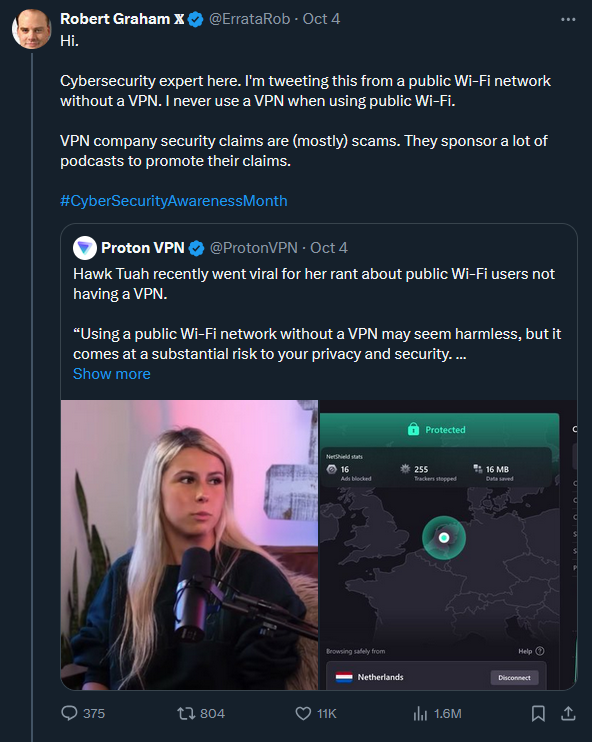this post was submitted on 06 Oct 2024
735 points (90.8% liked)
Technology
59534 readers
3135 users here now
This is a most excellent place for technology news and articles.
Our Rules
- Follow the lemmy.world rules.
- Only tech related content.
- Be excellent to each another!
- Mod approved content bots can post up to 10 articles per day.
- Threads asking for personal tech support may be deleted.
- Politics threads may be removed.
- No memes allowed as posts, OK to post as comments.
- Only approved bots from the list below, to ask if your bot can be added please contact us.
- Check for duplicates before posting, duplicates may be removed
Approved Bots
founded 1 year ago
MODERATORS
you are viewing a single comment's thread
view the rest of the comments
view the rest of the comments


Considering how most of the Internet is encrypted with TLS, if you add DNSSEC+DoH/DoT on top, trying to MITM someone on a public WiFi is way harder than it was, unless you're a state-level adversary and you're able to craft valid certificate for a domain you don't control from a globally trusted (root) certificate autority (which will lose its trusted status quite fast once discovered, ex: CNNIC)
Not all applications on your computer may be encrypting their packet traffic properly, though. That goes especially for the applications that might be trying to reach out for resources on your local home network (like printers, file shares, and other home servers) as well as DNS requests which are usually still made in the open. I would not recommend eschewing an entire security layer willy-nilly like that. On public Wi-Fi, I would definitely still suggest either a VPN or using your cell phone as a tether or secure hotspot instead if possible.
Sure, but it's also like, if you're stepping away from your laptop for a few minutes should you lock the screen or shut it down completely.
The most secure option is to shut it down completely, but also it's fine to just lock your screen.
If you've already got a VPN and it's as easy as locking your screen to enable, go for it, use it. But if you don't, you don't need to go out and get one. You'll generally be ok without one.
The most secure option is bringing the laptop with you.
I mean, technically - the most secure option is irrevocably destroying the laptop everytime you have a break.
The most secure & economical option is to never go outside
As a network security expert, I've got that on LOCK
Oh so a one time pad